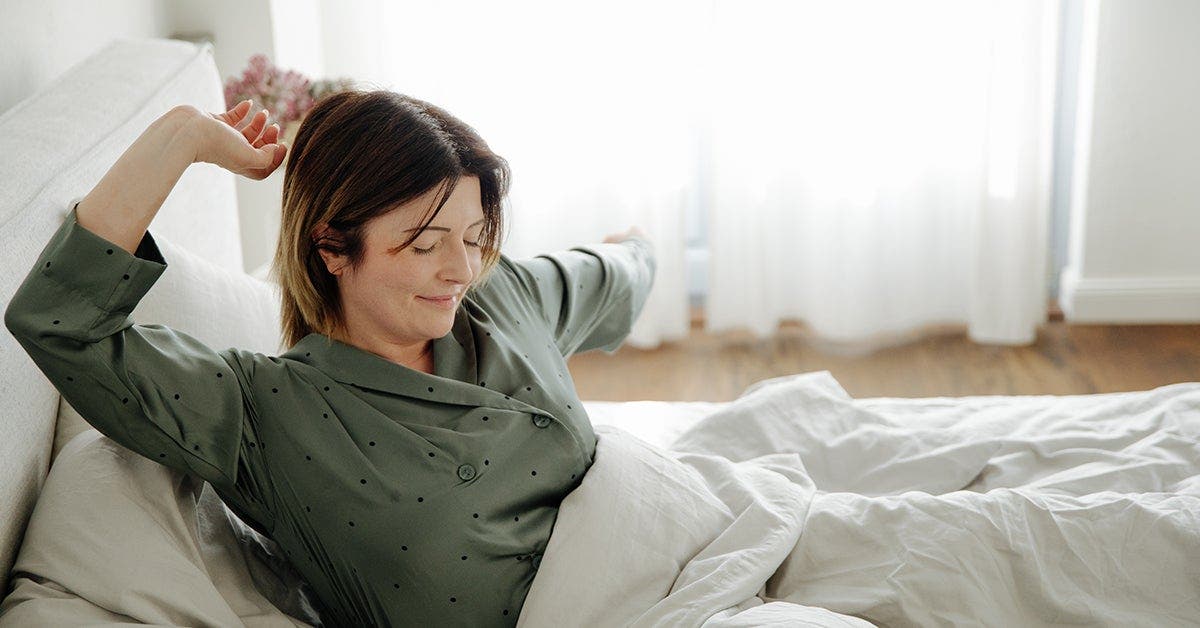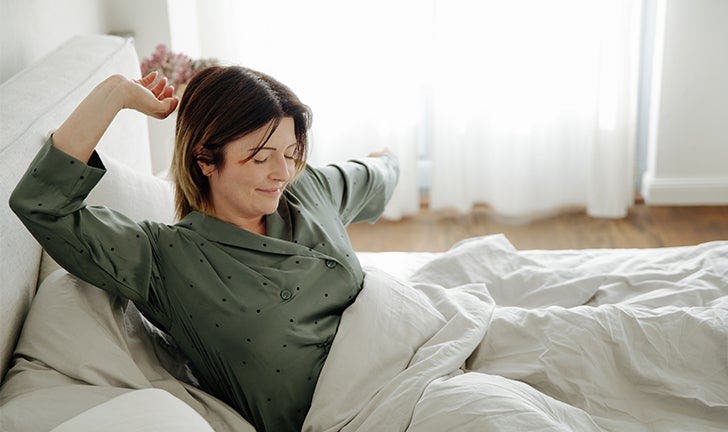How to Pick the Perfect Pillow for Your Sleep Position


The last time you shopped for a new mattress, chances are you tried out a few options, Goldilocks-style, before settling on your ideal firmness. But you may not have spent quite as much time choosing your pillows. And with so many styles on the market, from contoured memory foam to overstuffed down fill, finding the perfect place to rest your head can seem overwhelming.
To narrow down the selection, neurologist and sleep specialist W. Chris Winter, MD, author of The Sleep Solution says you may want to consider how you sleep. Do you curl up on your side? Can you only get comfy on your stomach? Your go-to position can help you choose the right pillow to support your head and neck. After all, that is their purpose—along with propping you up for movie marathons and building pillow forts, of course.
So if you’ve been waking up with back or neck pain or are simply in the market for a new set (experts recommend replacing pillows every one to two years), read on for advice on how to pick the most supportive pillow, plus other sleep-better tips.
Why the right pillow matters
Generally, the guidelines for choosing the right pillow have to do with height and shape, explains Dr. Winter. Both factors should allow it to support the vertebrae in your neck properly. In other words, when lying down on a pillow, your neck should remain in a neutral position (i.e. not tilted or curved in any direction) to minimize stress.
While there’s no magic pillow that can help you sleep better or longer, finding the right-for-you style can help if you regularly wake up with aches or pains, says American Academy of Sleep Medicine spokesperson Raj Dasgupta, MD, an assistant professor of clinical medicine at Keck School of Medicine at the University of Southern California. Pain is a sign that you slept in a position that created strain on your neck or back. Fortunately, simple changes to your position and/or pillows may help.
The best pillow for every sleep position
It’s no secret that a lumpy mattress or scratchy blanket could keep you from getting the rest you need. And the same can be said about your pillow. Ultimately, it’s all about finding one that fits your body, feels comfortable, and supports you in the position in which you sleep, Dr. Winter says. Here’s what else to keep in mind when shopping:
If you’re a side sleeper
To support your head and neck while lying on your side, look for a firm, thick pillow that fills the space between your ear and the bed. While this can be easier to determine in-store by squeezing pillows, when shopping online, search for options with medium-high firmness levels. Try not to rely solely on visual height (a.k.a loft) either—a pillow may look thick, but if it’s more plush than firm, the weight of your head could immediately flatten it out.
If you’re a stomach sleeper
Since there’s almost no space between your neck and mattress in this position, you’ll want to find a soft, thinner pillow. Look for styles with a lower-profile that are labeled “plush” or on the very low end of the firmness scale. Good to know: If you have back pain, Dr. Dasgupta says he doesn’t recommend sleeping on your stomach. If you can’t get comfy in any other position, try putting another pillow under your lower abdomen to help reduce back strain.
If you’re a back sleeper
We mentioned Goldilocks before and that's you, back sleepers. You’ll want a pillow that's somewhere in between the firmness of side- and stomach-sleepers—it shouldn’t be too thick or too thin, just enough to fill in the space between your neck and the bed. To get that just-right feel, search for medium firmness levels or consider an adjustable pillow. Depending on your fill of choice, these styles come with additional inserts or shredded materials that you can add or remove to reach your ideal loft and density.
If you sleep hot
If you often find yourself feeling overheated as you toss and turn, you may want to look for cooling features alongside your perfect fill-level. “Since people generally sleep better in cooler temperatures, [cooling] pillows can have a big impact,” Dr. Winter says. As part of our circadian rhythms—the internal regulator for when we’re sleepy versus alert—our bodies cool down pre-bed. And keeping your head cool can positively impact the body's overall temperature, Dr. Winter adds. Think of it as a top-down effect. Cooling pillows are designed with special fabric and other technologies that help wick away moisture and heat throughout the night (versus traditional options which can trap body heat) to keep you comfy.
While you’re at it: Set up the rest of your space for sleep
In addition to curling up in the right bedding, creating a sleep environment that feels calming and restful is important for good ZZZs, Dr. Dasgupta says. Again, this is completely personal, but it could mean adding a soft bedside lamp to your room or reaching for calming pillow spray before tucking in.
Other simple adjustments to your sleep space might be helpful, too. Keep things neat and tidy; find the right balance between complete silence and soothing background noise; and think about springing for blackout curtains or a sleep mask to keep light from waking you up. And as we mentioned with cooling pillows, chillier temperatures can help promote sleep. You may have to adjust the thermostat a bit to find your ideal number, but many people find a sweet spot between 60°F and 67°F.
Related: Can meditating before bed help you sleep?
The bottom line: Choose a pillow that’s right for you
There’s no scientific definition of the best pillow, Dr. Dasgupta says. It’s truly about what works for you. And remember, even simple-sounding tweaks to your environment can make a meaningful difference in sleep quality. However, if you find that sleeplessness or discomfort persists even with new pillows—and other changes to your setup or routine—a more serious sleep issue could be at play, Dr. Dasgupta says. In that case, connect with your healthcare provider to help figure out the cause and develop a personalized plan to help get you the rest you need.
--
Nicole Saporita is a senior content manager for consumer wellness at WW. A writer, editor, and content strategist based in New York, she specializes in health & wellness, lifestyle, consumer products, and more. Her work has appeared in Good Housekeeping, Prevention, and REDBOOK magazines.
